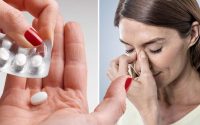Fasting before a cholesterol test: What to do and what to expect
A cholesterol test measures the amount of cholesterol and triglycerides in a person’s blood. Cholesterol is a fat-like material that is present in all of the body’s cells.
The body needs some cholesterol to help produce vitamin D, hormones, and enzymes that aid digestion.
A cholesterol test, also known as a lipids panel, measures several different types of cholesterol, including:
- high-density lipoprotein (HDL) cholesterol, or “good cholesterol”
- low-density lipoprotein (LDL) cholesterol, or “bad cholesterol”
- triglycerides, the chemical form in which most fats exist
To work out a person’s total cholesterol score, a healthcare professional adds the HDL and LDL cholesterol levels to 20 percent of the triglyceride level.
A doctor will use these results to assess a person’s risk of developing heart disease and other health problems relating to high cholesterol.
Read on to find out more about fasting before a cholesterol test.
Fasting before the test

Standard practice used to require a person to fast for 9–12 hours before taking a cholesterol test, meaning that they should have no food or drink other than water during that time.
However, recent guidelines have changed. They now allow doctors to recommend nonfasting cholesterol testing to certain groups of individuals.
One 2017 paper recommends nonfasting cholesterol testing, citing the following advantages of nonfasting cholesterol testing:
- convenient
- safe
- no waiting required
The author also states that research involving over 300,000 people suggests that nonfasting tests are at least as accurate as fasting tests at predicting future cardiovascular health problems.
This paper suggests that the triglyceride level will rise by an average of 26 milligrams per deciliter (mg/dl) for a nonfasting reading in comparison with the fasting level. The total cholesterol and LDL cholesterol levels will be 8 mg/dl lower, on average. The authors believe that this difference is clinically insignificant.
However, the medical community continues to debate the need for some higher-risk groups to fast before testing.
According to another analysis from the American College of Cardiology, higher-risk groups may benefit from fasting. This is because the equation that doctors use to find the LDL level tends to underestimate the levels of LDL and triglycerides in people who do not fast.
Due to this, a doctor may recommend that some people fast before a cholesterol test but suggest that other individuals do not need to. A person should follow their doctor’s recommendation regarding fasting.
In cases where a doctor does recommend fasting before a cholesterol test, this often means that the person must refrain from all food and drink except water for 9–12 hours before the test.
A person who undergoes a fasting cholesterol test is likely to go for the test first thing in the morning so that they may eat after the test and do most of the fasting while they sleep.

The results will tell a doctor if the levels of cholesterol in a person’s blood are healthy.
The test measures several types of cholesterol in a person’s blood in mg/dl. It is possible to break down the results by type of cholesterol.
HDL cholesterol
HDL results measure the amount of “good” cholesterol in a person’s blood. Higher readings tend to be better than lower readings:
LDL cholesterol
Recommended LDL, or “bad,” cholesterol levels will vary based on the health of the individual. Lower readings tend to be better than higher readings:
Triglycerides
Lower triglyceride levels tend to be better than higher readings:
Total cholesterol
A low total cholesterol level tends to be better than a higher one:
What might happen next?
What happens next will depend largely on the results of the test and other risk factors that a person may or may not have.
If the cholesterol levels do not suggest any potential health problems, a doctor is likely to recommend no further action or testing.
If a person’s cholesterol levels are high, a doctor may recommend that the person makes lifestyle changes, such as losing weight or changing their diet. The doctor may prescribe medications, such as statins, to lower cholesterol.
Additionally, a doctor may recommend more frequent cholesterol testing.
Why are cholesterol tests used?
A person can have too much cholesterol in their body. Often, people with high cholesterol have no symptoms.
Cholesterol can combine with other substances in the blood and make a substance called plaque that clogs the arteries.
The higher a person’s cholesterol levels, the more likely they are to have health problems related to high cholesterol, including:
- coronary artery disease
- blood clots
- angina
- heart attack
- stroke
- peripheral artery disease
- carotid artery disease

As high cholesterol often does not cause symptoms, doctors routinely order a cholesterol test for adults. The American Heart Association recommend that people aged 20 years and older should consider having a cholesterol level check once every 4–6 years.
Doctors may recommend that some people get more frequent cholesterol tests. Those who may need these additional tests include the following groups:
- people who are overweight or obese
- people with a family or personal history of heart attack
- people with a family history of high cholesterol
- people whose initial cholesterol test was high
- people who smoke
Takeaway
High cholesterol levels can warn doctors of other potential health problems that a person may develop during their lifetime.
As high cholesterol often has no symptoms, doctors recommend checking cholesterol levels with a simple blood test.
Fasting before a cholesterol test used to be standard practice. Now, however, the medical community is starting to change its recommendations on fasting before cholesterol testing.
A person should follow their doctor’s instructions regarding fasting before a cholesterol test.
Q:
Can drinking coffee before a cholesterol test affect the results?
A:
Drinking a cup of black coffee before a cholesterol test might not significantly affect the test results. However, it is best to follow a doctor’s orders. If the doctor suggests fasting before a cholesterol test, then the person should fast.
Source: Read Full Article


